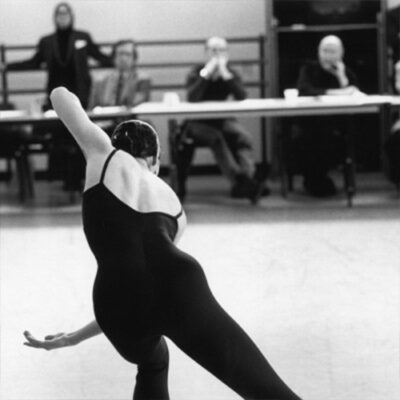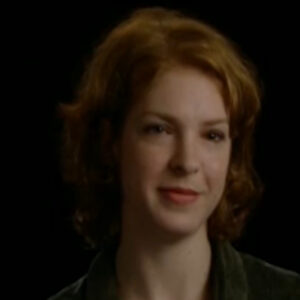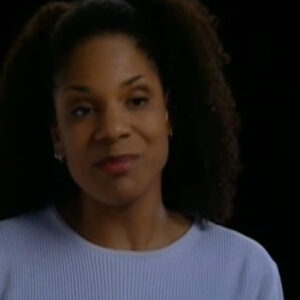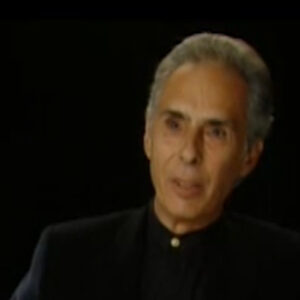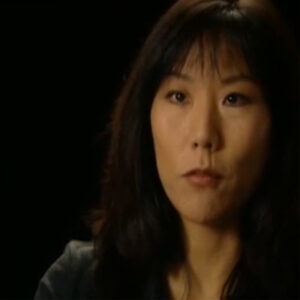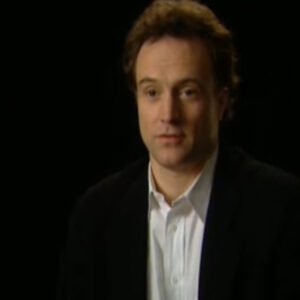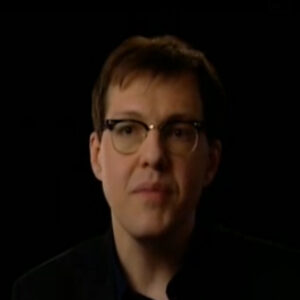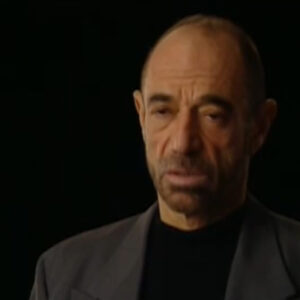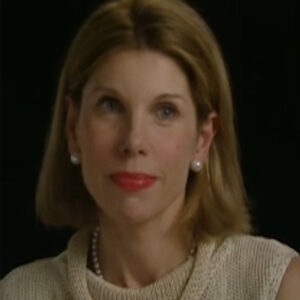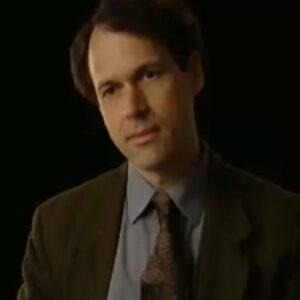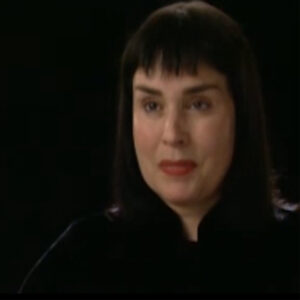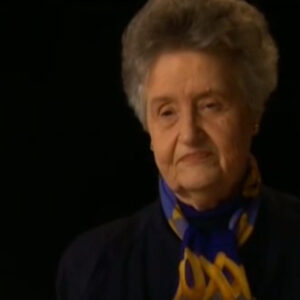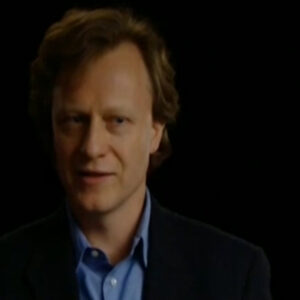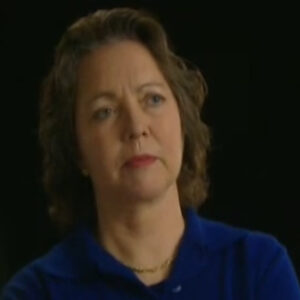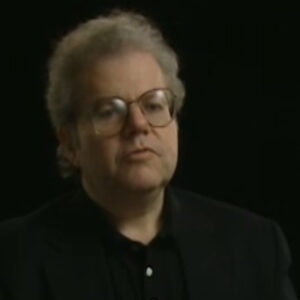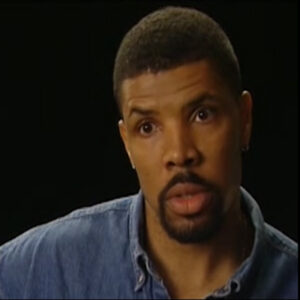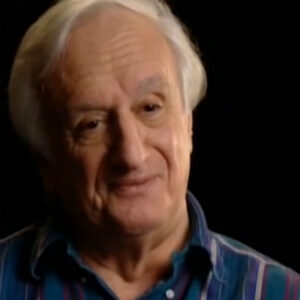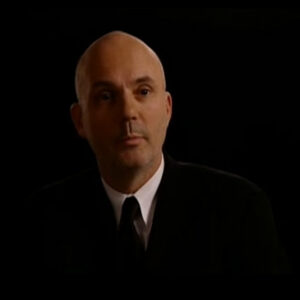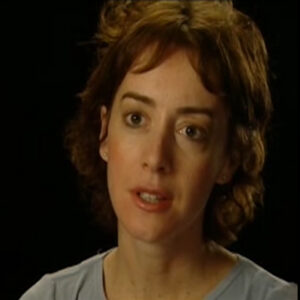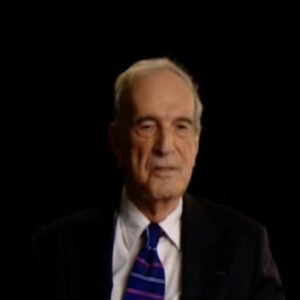Speaker And what is your vision society exist for a long time.
Speaker No is brand new. It’s like a brain. That’s a brand. It’s only a year old. The council was called the advisory something or other committee, which was making people feel as though they were Avis. And so we decided to reconstruct it and call up the council and see if we could use it as a possible training ground for new trustees, but also just see what it could be turned into. We had no idea out of that.
Speaker Mostly big sort of big Juilliard donors. Part of your society you’re not.
Speaker Well, it was the the Elevation Society is a an offshoot of an invention of the council. It’s an ancillary thing that the council people pay, you know, donate up to five, I think the council. But they work. They it’s supposed to raise money and do a few things. The council is that the innovation society is people to catch that middle ground gang who could who will pay anywhere between a thousand and 10000. They don’t have to work. They get invited to master classes and various other things, but it gets them involved with the school. That was all invented by people on the council. And it’s a it’s a very nice catchall for people who don’t want to be actively involved but and haven’t got huge bucks to give but want to be supported.
Speaker Oh, well, that’s good. That’s good. Glad to know that.
Speaker So basically, look, let’s start early on with your your your own musical roots and your background.
Speaker Before we do that, let me ask, are you supposed to be one of those people where I answer that to speak as though you never heard my question? That right. Right. OK. This thought that said everything.
Speaker My question. Right. I have. Yes. Although I will try to make you first hear. Oh yes they did.
Speaker Neat trick now with my mother. She used to try to get me to cry. I’m not crying.
Speaker So I mean, Europe wondered, what are your own? I mean, tell me a little bit.
Speaker Of course, for those who do not know, had your own, you know, musical roots, your family, your connection to Juilliard, where did that all come from?
Speaker My musical roots began with my father, Richard Rodgers, who actually went to Juilliard for a couple of years and considered it his finest educational experience. In fact, the only educational experience that was worth anything. He never bothered to graduate from the first high school he went to, which he found odious and no music involved, and he hated it. And then he went to another one and he didn’t like that either. Didn’t graduate from there, got himself into Columbia just so that he could write the varsity shows, did that for two years, and then decided he needed a little musical education and went to Juilliard when it was the Institute of Musical Art, and it was for the first time in his life. I think he was academically happy. He absolutely adored it.
Speaker Grad and didn’t graduate from there either. But he just went straight from there to Broadway and lived happily ever after. So then he married my mother and produced me and my sister. When I was about eight, I started to play the piano more than adequately. But when I was nine, my sister came along and she played brilliantly. So for many years, I was really sort of embarrassed and depressed and decided that I would play for as long as I had to. But I did not like performing. When I was about 16, I started to study counterpoint and harmony on my own and I was a music major at Wellesley. And so I writing when I was about 20, 21. I mean, actively writing or getting published in children’s songs. I thought, I’ll sneak in the backdoor. Nobody will notice that I’m doing this. So they won’t say she out of her mind trying to do this when her father is who he is. So as a matter of fact, I wanted to go to Juilliard myself. I used to say all the time I wanted to go to Juilliard. And then it occurred to me, that’s fine. I never would have gotten into Juilliard. They wouldn’t have taken me in a million years. But, Tim. After writing music, once put a mattress and various other things in writing children’s books, I got to a point in my life where, well, actually it was studio.
Speaker I came along first, though. I was asked if I if I would be interested in being a trustee. And it had always been to me the the quintessential wonderful place. There just wasn’t anything better. So I said, yes, I’d love to. And so here I am, eight years later, nine years later or whatever, it is supremely happy with what I guess is the end of my life. It doesn’t feel like it, but.
Speaker What up? What did what did you know?
Speaker Juilliard, outside of your father’s own love affair with it? I mean, was there a legacy of it? Was it. Was it. Was it something that he just sort of, you know, came upon or was truly art, sort of this Juilliard Institute of Musical Art? You know, a great legacy of music in New York. What did you know about Juilliard?
Speaker Was to me, what I think it still is to a lot of people today. Fantastic place for pianist and violinist and musicians in general. I had no idea really until I got involved with the school that it. It actually has several other active and successful component parts like drama and dance and all those things that that are quite often the best kept secrets in the country, let alone New York. So I just knew that it was the best.
Speaker And what do you think?
Speaker You know what’s interesting, I always think about the sort of conservatory myth of, you know, these hardworking teachers and, you know, we’ve been renting old movies from the Red Shoes to, you know, sort of looking at what is this thing that people think of conservatory is. And then when you’ve spent, you know, as I had the last year in it, what what it really is it. I mean, what do you think? The sort of conservatory. What is the conservatory? You were in your kind of sort of American and even European. Actually means the Russian teacher. You know what it what is that whole myth?
Speaker I’m not sure the conservatory math is a myth. It just doesn’t exist the way it used to, thank God. It it was it’s a terrifying Russian teacher who screams at you. And it’s, you know, Robin Williams says a very good imitation of the of the terrifying Russian teacher. It was extremely hard work, always without any affection or acceptance of the fact that these were human beings who needed emotional support as well as everything else at this point. I think we have very few, if any, people like that left simply because society has changed. And I think it’s hard on some of the older faculty probably to realize that there are exigencies now that didn’t exist in the old days. You you just don’t stick a kid in an ivory tower called Juilliard now and not take into consideration how he’s going to eat or how she’s going to find an apartment or that there are emotional problems to do with competition or any number of other things. It’s just a growing awareness, as there is in society in general of the how about how the school has to be a different kind of place?
Speaker And have you seen the school? Well.
Speaker Grow a lot even in the time that you’ve been there. I mean, it seems that it seems that Joe’s tenure has created a lot of a lot of change even in just in the last 20 years.
Speaker Joe has been just brilliant. He still looks too young to have the job. And he’s had it for fifteen or sixteen years. I think he was thirty five police when he was hired by Bill Sherman. He’s adorable. I have a small part in love with him. I didn’t. As is everybody else. He is just.
Speaker And chatting and creative and daring and conservative, he has every quality you’d ever want. He really knows what he’s doing.
Speaker But of course, he started out not to do what he’s doing now, as a few people probably now went to Fletcher School of Government, where he had a whole other career outline for himself and was irresistibly drawn back to the academic life and music. And he he sets the tone for the whole school. That’s that’s remarkable.
Speaker Can you can you sort of vote a vote for us? The sort of music theater.
Speaker Broadway. Carnegie Hall, CNN.
Speaker New York. The Juilliard has had to.
Speaker Either wedge its way into or be as filled up. You know, just set to as the legitimate music at Juilliard Army. Well, what was the sort of musical.
Speaker Scene of New York that truly authorities found its way. What does it place in that scene?
Speaker I think Juilliard originally was simply as it was known to be a conservatory. But all those edges are blurring now, and opera and musicals are almost indistinguishable some of the time. And vocal arts people like Audra McDonald suddenly turn out to be people who appreciated the training but really wanted to land up on stage. And the minute the dorm got built, which is an enormous change for Juilliard, the dancers were billeted with singers and instrumentalists and actors, and they had to become perforce interested in each other’s disciplines. There began to be all kinds of cross referencing and cross breeding in the school itself. So that now we have choreographer, dancer, composer workshops so that there is not one kid in the dance division who escapes from us without knowing how to choreograph, because we all know the life of a dancer is over. And then about 10 years, with very few exceptions, they need to know how to do something else. So they are everything that they learn. Now, the kids, no matter what discipline they’re involved in, is they are taught with somebodies eye towards how they’re going to use that. At one point we it was decided not by me because I’m not wise enough to make those decisions, but by the faculty and by by the president that we simply had too many violinists and too many. P.S. it wasn’t fair to them and it was pointless. They couldn’t be employed. On the other hand, we always need enough to to have two full orchestras. It’s a critical mass. You need an enough students to be able to have chamber groups and various other things. But you don’t take so many violinist and P.A. that you can’t they don’t stand a chance of being decently placed there when they get out.
Speaker Go on going back a little bit.
Speaker What did your father say about the the I may in the old days? How did you describe it? How did he describe the environment, the building that the.
Speaker The world of the. Both sort of spirit of that place.
Speaker I’m daddy’s feeling of that of at Juilliard was as I said before, it was his lifeline, I think, to anything vaguely academic. He was never interested, although he studied piano from the time that he was very little. I don’t remember his ever discussing what went on at Juilliard. I just remember how grateful he was to it and the fact that he eventually learned that he had to be more literate than he started out being. He he knew how to conduct and because he didn’t have any money. He would conduct his own musicals when they were on the road or when they were in New York. But it took him quite a while to realize that he had to start learning notation, which always bothered until the day he died. He kept moaning about there not being a musical typewriter and he could see finale. And now what we have now. It wouldn’t do any good. As a matter of fact, because he was an absolute idiot, he was the typical I don’t know how to to screw in a light bulb person. So if there’d been finale, he wouldn’t have known what to do with it. But it it did make him a very solid musician and a lot of areas that he hadn’t had before that he was a he was a pop Columbia University kid hanging around Mount Morris Park where he was born and hanging around, you know, uptown with all the rest of the people like Oscar Hammerstein and Larry Hart and the gang.
Speaker You may tell me that you know nothing about the Kewdale. Do you have any.
Speaker This sort of knowledge, however, thumbnail it may be about how the school began and. What the left is sort of early philosophies were.
Speaker I really don’t know very much, and I should, but I’m I’m to give you feel free to say now or the editing ended up. No.
Speaker Do you know a lot about what do you know or know of the sort of great teachers of the past?
Speaker Very little.
Speaker I know that the great teacher is carried with them at Juilliard. An element of fear. You know, Adele Marcus. I mean, Neil Sudhakar studied with the Dael, Adele Marcus. Most people don’t even know that Neil Sedaka went to Juilliard. He he went to pre college. I don’t think he ever got all the way to to the college division because by that time, he was receiving cash in a paper bag and trotting all over South America and Japan, where he was a big star. But he talked about how terrifying she was. I mean, that they were scary people as teachers. And at the same time, it was a huge feather in your cap to be studying with one of those people.
Speaker We’ve seen some incredible.
Speaker Stuff with footage of Rosina Levine and her fabulous wigs.
Speaker And what about some of those people that that are still there?
Speaker You know, Dorothy DeLay, the real star makers.
Speaker I mean, do you think that that that sort of pedagogue teaching student relationship is still very much an important part of the Juilliard experience for a lot of people?
Speaker I think the Dorothee delays, I hope the Dorothée delays will always be at Juilliard and be there for kids because there’s something thrilling about working with somebody like that. And the thing about Dorothy, among other things, is that she has an absolutely wonderful sense of humour. And we gave her a A at a dinner party for her umpteenth birthday, and she was hilarious about it. And everybody came in and made wonderful jokes about her eating Chinese food and all sorts. She was she was fabulous. There’s a real human being underneath there with it, with a very big heart as well as a very big stick.
Speaker You know, she’s always calling all of her students Sugar Plum, and I love that sort of diversity of the teaching tactics there. So what do you think of that?
Speaker And then there’s that terrible sort of get all the sort of the double mix, talk a little bit to the great to the degree that you’ve experienced yourself, but also how you perceive it at Juilliard.
Speaker About being a woman in the world of the performing arts. And then how was this sort of going through Juilliard as a female and yourself being out in the performing arts for all this as a woman, the sort of efforts, the thought that they’ve had to put into it. I mean, Bill, yanno, says the orchestras are all now starting to be filled with women because they can turn better, as you said.
Speaker How have you realized he was making a late night?
Speaker Well, that’s the x ray.
Speaker My own personal experience as a woman was trickier than my experience as being the daughter of Richard Rodgers, because when I was first writing for the theater or whatever it was, I was writing children’s songs. If people didn’t like what I was doing, they’d say, oh, it’s feminine. Well, you know, stuff doesn’t have good stuff, doesn’t have a gender. It’s either good or it isn’t. But you could say you can’t say it’s feminine or it’s masculine. Certainly there’s there’s very little problem now in terms of being a woman in the in the performing arts. And there always has been less of a problem for women composers. I mean, serious women composers are all over the place. The theater is still a tougher place for a woman to make it. And I think because the lifestyle is so demanding. It’s it’s hard to be pregnant and at orchestra rehearsal. But there are people who manage to do it. But it is hard. The orchestras certainly have opened up. And there are a lot of kids that a lot of girl kids in there now and.
Speaker I don’t know. Running out of notion here.
Speaker Well, I noticed that in the last, you know, and probably due to the fact that the you know, they were required in some way by by societal changes. But a lot of effort has been made it Juilliard to think more about how people are feeling, what their what’s going on with them, that they’re coming from a foreign country, that they’re. And I mean, the population of Juilliard is really changed. And some of the things that need to be done for people, things that need to be there.
Speaker From from psych services to, you know, don’t hide your injury anymore. Let’s let’s fix this injury so it doesn’t ruin your career instead of pretend you don’t have it.
Speaker So nobody knows. I mean, how much do you think the school. I mean, how much does that topic come up and how is it really changed over time?
Speaker It’s interesting because I never thought about about that very gradual change in the effect that that more women involved with the school has had on the quality of life at the school. But it’s obviously tremendous, I suppose, very simply, because women really are nurturers. They are the people who tend to notice if kids are unhappy, if if they if they hurt, if they need psychological things, then there never was the kind of attention in the old days that is paid now to the emotional comfort. I think the dorm, as I said before, was was one of the most important contributions that I’ve made to the quality of life. Years ago, I was on the board of the Professional Children’s School, and my assignment was to find places for Juilliard students to live when they came from foreign countries. And I thought, that’ll be easy. Lots of people have great big apartments with a spare maid’s room. This won’t be hard to find a man who wouldn’t want to give space to a New York kid. Nobody wanted to give space. I don’t know what they were doing with their major home. Maybe they were filled with maids, but or dog food. But whatever it was, I never managed to find one family who would accept a foreign Juilliard kid so that he she could study and live in the city. So the dorm made a gigantic difference. And then all also the kids are right there under your nose. And you can’t ignore the fact that some of them have problems or that those things have to be dealt with.
Speaker Do you worry a lot about how young some of the kids are? I mean, you know, this is an issue that comes up a lot.
Speaker Maybe maybe in a mythical kind of way as a criticism of children, which I think is worthy of addressing or dispelling the myth of these little little kids who just don’t even have the idea of what they’re doing, getting railroaded into this world by their parents.
Speaker I’m sure that’s a myth that many people have.
Speaker I don’t think any little kid gets railroaded into a life of music, which is what we’re basically talking about.
Speaker You don’t start being Sarah Bernhart at the age of six or seven, but that kind of musical talent, when it shows up, must be addressed. It’s the most precious thing we have on the planet. Really, that kind of out of nowhere talent. And I don’t think there’s any such thing as a as a child who shouldn’t be encouraged to do that. It involves a great deal of work on the part of the parents, obviously, and a lot of sacrifice. But you you can’t just let that go. It’s a horrible waste of a precious resource. So and I think the kids feel that, too. And if if there’s a kid who’s not. About to fulfill his her potential. At some point, that kid finds that out and finds, I hope, certainly at Juilliard. Another way to use the gift teaching administration, whatever it is. But but you can’t ignore it. I think it’s criminal, too. I don’t know what other people think, but I think it’s criminal, too, to come across a talent and then not encourage it.
Speaker Yeah.
Speaker The Juilliard.
Speaker Actually, are there’s I mean, you’re you’re someone who came from a world of musical theater and. It’s something that’s merging, you know, coming more into play. But. I think that I’ve encountered, you know, some criticism about how traditional, you know, the sort of musical tastes still run in a conservatory world. What do you think? I think so much about the sort of the elite ism, populism, music and performing arts. What do you think? Well, if you can play this, then you can do that.
Speaker Do it when you leave. You’re getting the technique. You’re getting the.
Speaker I don’t think there is is that kind of elite ism in a school like Juilliard. I think smaller schools might be forced to concentrate on on a more classical road to take. But what we’re about to have jazz at Lincoln Center join with us. It’s going to be jazz at Juilliard. That’s we have Wynton Marsalis bar bopping all over the place. He’s on our board. He’s been teaching master classes for years. We do some pretty peculiar contemporary stuff and we have electronic music being written that boggles the mind. I don’t even understand what they’re doing. But they do. They also we have kids who are who are going to make a living, scoring pictures and doing all kinds of.
Speaker Technological things that that nobody dreamed existed years ago. But we’re not at an academic ivory tower. Step back in another century at all.
Speaker And what do you what do you think a little bit.
Speaker Amy quoted to me reading something you’ve said on CBS Sunday Morning talking about Adam, and you said, I think there’s an intimate connection to how passionately you want to be creative and the amount of talent that you have. And I wonder if you can talk a little bit about the. The change of what the changing world that’s available to, you know, how many students you’re saying have to cut back on piano and violin, it’s just not fair. But also the audience that’s out there to hear these people that are coming out. What are they entering? They’re not entering the same world that that existed before. I mean, for going to see classical music. And also a secondary question is really the difference between luck and talent and ambition, selling yourself, being your you know, it’s not always that just you’re the best balance. So you’re gonna get hurt. It’s like you got to be out there. You got to be tap dancing. You’ve got to have it all.
Speaker It’s always been true that eight I believe that he.
Speaker Getting somewhere is 65 percent drive and 35 percent talent. If my arithmetic comes out right, you could have tons of talent. But if you don’t have that, the inborn genetic grit to keep being slapped in the face with a wet fish and just keep on going and plug, you probably won’t get anywhere in there. The world is probably full of people who are extremely talented and lacked that other element called dried. Once you have that, I think all you have to do is keep going. And I think luck has very little to do with it. I always look at people who come and land up in the theater and I said, Where are you from? And they say, South Dakota, South Dakota. I mean, how does anybody get out of South Dakota? Well, they do. People can get anywhere if they if they want to badly enough, they find a way. Our kids find where there are kids who don’t have enough money. You wonder how on earth they’re managing at all. But they do.
Speaker And.
Speaker In their convocation remarks, you know, you talk really movingly about.
Speaker About how how vulnerable all these kids are at the school.
Speaker I mean, they’re very talented, very sensitive. You’re talking about people sort of coming together, you know, maybe hearing people for the first time that are as talented as them. They’ve come they’ve been a big fish and they’re now getting to a big, big sea instead of being in a little pond. They were once. I mean, what. When it’s so nice to me that you’re having those kinds of conversations with them, because I don’t think they’re expecting to hear that when they first get to Juilliard. But talk to me a little bit about where some of those feelings that you have are coming from, these sort of outreach to them. Michelle?
Speaker The thing I like best about being at Juilliard is that I’m allowed to be who I am, which is very open. I hated my childhood. I felt restricted, pushed around. I swore I would never forget what it felt like to be a child. And I probably haven’t. But to me, it’s always a lot easier to tell people how you feel and not go to the enormous trouble of concealing it. So when I started being chairman of the board, I thought, God, I don’t even know Robert’s Rules of Order.
Speaker I don’t know how to do any of this stuff. But I better not worry about that and just say what I want to say. And it’s it’s worked out it’s worked out pretty well because I’m very happy to tell people what my insecurities are and all these kids. I mean, I’ve got five children of my own. I have three grandchildren. And I as I said before, I’m not going to forget what it felt like to be a kid. What is a kid except insecure and what are most grownups they’re insecure to. So nothing makes anybody feel better than for you to say, well, I certainly was an idiot doing that. And the minute you say that and you’re chairman of the board, somebody thinks, well, if she can say it, I can say it. I can feel it. Everybody feels those horrible moments and nobody will feel those things more poignantly than than a deeply creative person with everything in the world at stake. And it is scary. You come and you think you’re the best violinist in your state and maybe you were, but you you’re in with an awful lot of other very good ones and courses. And as an instrumentalist, I don’t think you have the comfort of being part of a group which you can feel as a dancer or as an actor. So it’s the vulnerability is is overwhelming. But I think if if all of the faculty and they do it and trustees when they when they can communicate the fact that we’re all human beings interested in the same thing, which is devoted to the concept of of art in a world that that the Western world, which has always supported it better everywhere but our country, that there is support there and caring there. And what they’re doing is, is something nobody else on the planet can do. It’s that they need to feel at and.
Speaker I’m I’m in awe of who they are.
Speaker I don’t know if that answers does completely. I’m sort of I’m thinking about, you know, Julie or something I just asked Joseph, but that Juilliard is really this this this this high watermark.
Speaker And I’m wondering also in being somebody who’s involved in sort of the legacy and the ongoing legacy, the future of the school, the sort of that obligation to the students that are there, but they also the obligation to keeping the performing arts alive in the United States and fees that high water mark of making those artists available for other people to hear other people to to learn from the grower to just sit back and enjoy.
Speaker I mean, it’s it’s it’s a fairly rahe.
Speaker Responsibility on Juilliard and the other, you know, few conservatories that are that are at that level.
Speaker The most important responsibility of the school, aside from seeing that, that a kid gets the best possible musical education or whatever it is, is to teach the kid how to communicate. Love what he or she is doing. And there was a time when when musicians would just come out and play, and that was the end of it. Well, Leonard Bernstein changed a lot of that. I think it’s very important now for students to know that that communication between them and the audience is is a vital part of continuing the education. We have a teaching project that goes all over. We have a music advancement program that brings kids in. If there isn’t any dissemination of of love, aside from information about the arts, we’re all lost. So we consider it a very important part of the training. Now that kids know how to speak eloquently, articulately, amusingly and knowledgeably about what they’re doing and communicate that excitement to the audience, which is, you know, I had the great privilege of of working for Leonard Bernstein for the 13 years that he was doing the young people’s concerts. And of all the things he did, I think very possibly this. This was the thing he enjoyed the most. And he certainly did it brilliantly. There’s never been anybody who could communicate that kind of excitement about the art.
Speaker You. You know, I’ve noticed I see you in a lot of different shows. I mean, talk to me about maybe some of the things that you’ve seen this year. You’ve gone to see some of the performances and what you know what. What ultimately sitting in that audience is just another member of the audience does for you.
Speaker When you see the level of productions that are actually the one thing that I that is is slightly off the beaten track that absolutely thrilled me this year. Not what, but one of the things was the cabaret evening that the third year drama division did in a nightclub type place on on West. Seventy second straight a few weeks ago, the drama division. Kids are not auditioned for singing their audition for acting. However, they seemed to sing. And once a year they put together a cabaret evening. And I was staggered by how good they are. In fact, I was I was writing down their names thinking I’m going right to my favorite casting director. It’s with some of these people. The brilliant thing being that they nobody but I didn’t expect and be able to sing. But the once they can sing, they’re such wonderfully skilled actors because they’ve spent four years being 20 out of each year, 20 out of a thousand and something applicants. So, you know, how could those 20 have to be they can act the lyrics so brilliantly. Barbara Cook comes and does masterclasses with singers in the vocal arts department and the Opera Center department and explains to them that it has nothing to do with their voices. They wouldn’t be there if they didn’t have good voices. But how did they communicate lyrics and defined out of nowhere this serendipitous bunch of 18 kids or whatever it is we have in the third year drama division this year that gifted in an area they’re not even supposed to know. That is the versatility of of what you see when you when you go when you watch a kid choreographer in the dance evening, do it doing what she’s been encouraged to do all all these four years or whatever it is, and see how successful it is there is. And then just the plain incredible virtuosity of of an injured individual performer. I can’t even name a particular thing. You’re just surrounded by by brilliance all the time.
Speaker We are also build the coverage through.
Speaker Did you call this the third year of class that we’re following? But there is something so.
Speaker I’m so glad you were there. I can’t tell you. How about that, guys? Things this little.
Speaker Just marvelous.
Speaker Yeah. We actually following what we saw in rehearsal, but, you know, we saw it first.
Speaker Yeah. Doing it and then performing it.
Speaker Tell me, did you read to be blown away by that. Tell me what you thought.
Speaker Well to have a great big tall kid come out and do Billy Bigelow and sing the soliloquy from beginning to end out of Carousel with the kind of accuracy and emotion and power. I think he should be cast immediately. Then there’s a great big, tall, wonderful blond kid who acts wonderfully and they all have humor. And then there was an. I think Japanese American girl who who comes out with a with a little voice. And you think, I wonder where she’s going with this. And she’s very powerful. It just takes a little while to figure out where she’s going. Their choice of material was so intelligent. It Debbie Lapidos, who put the whole thing together, is obviously a consummate director and planner. It was it was just so professional.
Speaker I don’t know, I love it. Well, we’re following all those students, but the one that you’re talking about is one of the actors that I’ve been following who say, you know, show me the world or whatever.
Speaker That’s the Sundheim song. He sang Jeff. His name is Jeff. And I think Jeff. Are you interested in doing Curlee in Oklahoma?
Speaker Because I think by Phedre, you know, it is it is very I mean, I feel that way, too.
Speaker I mean, I had such a great time going to all the shows this year, but, oh, there was a wonderful dance program that we did for something called the Innovation Society, which is of a group of people of any age who are interested in supporting Juilliard and taking part in things that go on in the school and kind of behind the scenes level. And there was an absolutely fascinating. Of African dance program. And the kids were unbelievable. And that the sounds were wonderful and the instruments were wonderful. And it was just a rehearsal room. And the costumes were wonderful. And we all came out of there. It’s it’s it’s a natural high to be around these kids, which is why I love this job so much.
Speaker Do you think it’s a. I mean, I see incredible commitment in the kids there that. I think it’s just hard to see. I mean, you’re looking at it at a top tier.
Speaker But the incredible commitment.
Speaker And Ben Harkavy, if you if you lived through his sometimes lengthy speeches once said, he finally said this is this I know I’m never going to be here. I know I could help out. But he once said, you know, it’s it’s it’s very, very difficult to become an artist.
Speaker But at least at Juilliard, you’re not afraid to use the word artist. And I always really liked it when he said that because I felt that there was I mean, it is a nine to nine job over there. It’s stunning how much they’re working.
Speaker I think if you have the wherewithal to be an artist, you you summon up that you have the passion and you summon up the energy. It’s just a different kind of life than anybody else leaves. That’s all I knew. You know it inside you. You’re prepared for that. You’ll do anything for it. So it’s not even terribly unusual. It’s like for those kids, it’s like lifting a car off of somebody, knowing that they’d just get the energy and the commitment from somewhere because it’s all inside there. They have to do it.
Speaker And people say, well, look, you can do anything else, do it, because it’s a big, long, hard road.
Speaker I sit next to people all the time at dinners who say, well, so-and-so became a doctor because his family said, you’ll never make any money. Those people often are are wonderful musicians and have a great added piece of their lives because of that. But I suspect that those are people who are not brilliantly gifted. They’re not on the top tier. The way I know that I’m not on the top tier. If I’ve been on the top tier. I wouldn’t be chairman of the board of Juilliard now. I’d be still writing. I’d be doing something creative. And I’m much happier doing what I’m doing. People who become doctors and other things, scientists, whatever, and continue to be musicians or people who would have made probably less than than the top in the in the way of talent.
Speaker But we’re all we’re not same. They started to run a dairy cow.
Speaker No, no.
Speaker They tell us to get that. Are that are even, you know, the neurological the intelligence level of the people. You know, when you when you meet someone often who when we spoke to a person, is actually quite involved. Now it’s bread raising a woman named Julie Choy. We interviewed her. And, you know, it’s like it’s not like you don’t play the piano or you figure out what to do. It’s like, well, if I’m not to play piano, I think I’ll start my own, like, you know, major company. And, you know, you’re seeing people that are operating at a very high level, even if they decide to make a chef.
Speaker Absolutely. It’s a. There are all these kids are very, very bright. They some of them, more than others, are academically educated. There’s just so much that a place like Juilliard can do. By the time we get them, they’ve already presumably been through high school. And if they’re instrumentalists especially, they don’t have much time left to to.
Speaker Do a lot of reading or whatever. But. If they decide that they’re going another route, they’re certainly capable. And they make wonderful lives for themselves. Julie Choi is a perfect example. She’s a terrific Juilliard graduate, but she’s very active with us now. And she runs a terrific business and has a husband and two kids and a very full life. And there are a lot of ways to skin a cat.
Speaker OK. Is there something critically important we haven’t mentioned, Amy? You can always that Amy is always good for chiming, I say.
Speaker Would you say so interesting that I begin getting Apsley fascinating. I forget I’m supposed to say anything at all.
Speaker No, but that’s you know. Does anybody have any do you think you departed.
Speaker Who’s gone to the movies. Had to go to work. I drove you to do her taxes, you know. All right. Oh, everybody.
Speaker I don’t know about anybody else. Normal people like Amy who work here and work all the time suddenly had this realization that our tax taxes do it.
Speaker Yesterday, I got a phone call this morning saying you’re going to meet if you haven’t gotten your accountant or counted your receipts and you’re shooting for five days. Yeah, I know. I got a phone call this morning from my our youngest kid who got an MBA from Stanford. So you’d think he’d know better saying WAPs miscounted.
Speaker Oh, a lot of money. Yes. That’s a fine time to find it out this morning. You figured it out.
Speaker So, yeah, something very important that you want to say about about the school or how it’s changed for something that’s going on there or.
Speaker Well, it’s you know, it’s it’s hard for me to talk about how it’s changed because when I got here, it was already pretty changed. All I know is that that people didn’t have as much fun there by a long shot as they’re having now. And it also has a more severe reputation than it deserves to have.
Speaker But I don’t really. That’s not really very important for why people are having fun. I think the door makes a difference.
Speaker I think that the the just entering this century, I think Joseph has made a difference, an enormous difference compared to Peterman. And this is off camera I. But it has a lot to do with who’s there.
Speaker And I think most people determinates period. That library is like.
Speaker Yeah.
Speaker I think that most people, like most acting students from that time, don’t even know who he is.
Speaker And he can’t say that about just absolutely anything other shows.
Speaker And that’s the kind of you know, well, we did a thing when I first took over. It was literally show and tell because the trustees didn’t know anything themselves about above the second floor. They didn’t even know. I mean, it was a new lobby, so they barely knew their way around the first floor. But we took them up and showed them the electronic music department and the costume department and a whole bunch of stuff. And instead of having drinks at at lunchtime and a big targets at lunch, we used that three quarters of an hour where everybody is either drinking or not drinking or shouldn’t be drinking or whatever tip to trust them around the school and or have people come in and talk to them about what the school was there. How can you. Be it be a trustee if you don’t know what’s going on in a place like that.
Speaker Well, one last question that I want to ask you is that, you know, I did a film in 86 about actually a series of New York graduates who went on to win the YMCA competition. And you would go round with them. These you know, these kids would train their whole lives and there would be five five people in the audience. I mean, how or how is it and how is Julian’s role or how do you think of how do we re-engage people that are watching television, surfing the Internet? I mean, what’s going to happen if we don’t?
Speaker You have to re-engage them by getting into the schools. You really do. Which which we try to do. But which every single one of us who votes has to try to convince whoever is representing us to make sure that the funds funding is there for that kind of activity. Twenty five thirty years ago, every single kid had an instrument to take home and learn. There were bands, there were orchestras.
Speaker There were all kinds of arts things that that are only beginning to be recognized today as being vital to the the emotional and cultural well-being of a young person. So it has to start there. Then you just have to be very, very ingenious about what you’re doing. I think you can’t just sit there and wait for your your manager to come up with something to make your own staff do it in the living room. I think people that’s certainly what what the actors do a lot. And the musical kids do it, too. And they have to you have to be so a self starter somehow.
Speaker They live. They eat. If they want to badly enough, they do.
Speaker But do you think that the world still exists to go and hear all these? Trancers, is the audience still there?
Speaker Wow, I mean, I think there will always be an audience for talent and it’s the question of how you get it out to them that the thing that I hate the most because I’m handicapped in terms of all things to do with computers and stuff, is that there is a good aspect to that as well. And I know that there is a way to to have a culture going out over the Internet to get to get to people.
Speaker There’s always that. But whatever new that’s invented that we sort of resent on ones that can probably be used it to further the things that we also care about. I’m sure there are things I haven’t even thought of because I am handicapped in that area that will take the place of of other things. We no longer have the hit parade. But but we have other things. We have the ingenuity required of young composers now to who are forced into writing chamber operas, chamber musicals, whatever of their being restricted in a way. But it’s also very healthy, though. There’s going to be a place for those musical somewhere. There’s that they will be done in regional theaters that there’s. I’m hopeful. Well, I’m always helpful. I don’t think the world can live without art. So people will find a way to feed themselves while doing it and people find a way to listen to it at the other end.
Speaker I think. So good.
Speaker So with that wonderful thing was that Michael Kahn was sitting right in back of me and I punched him and I said, because we want to give a benefit to other people now that the drama division exists. And I said, there’s our benefit. There it is. You just pick it up and put because there the 30 or we can use them.
Speaker Next year, just pick them up and slap them on a stage and charge a lot of money.
Speaker What did Michael say to be slight? Oh, we absolutely agreed.
Speaker He was thrilled because there, you know, Joseph hadn’t been to this one because, you know, he’d CCAC and everything, and he was floored. I think how insistent and enthusiastic I was. We’re beginning to get some really interesting people on the drama committee now. Scott Rudin, John Barlow and Michael Hartman. I think you were young PR people. A lot of a lot of the actors are the ones who’ve got the time to give. Well, Christine Baranski has always been helpful. We’re going to, you know, get that news out there if it kills me. But to have a ready made product that we can just pick up and show that there’s thrilling.
Speaker So the camera is going to have a second performance.
Speaker Well, it will. If I I mean, this is still and it’s it’s germinating stage only because I haven’t had time with so hard to pin down everybody to have a drama committee meeting.
Speaker But what I think will get this done.

